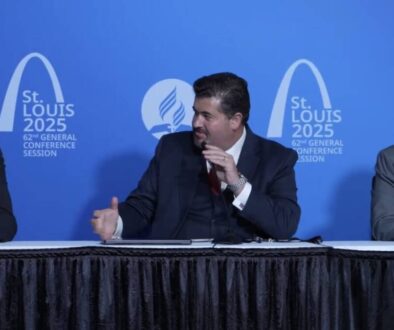Adventist Students and Volunteers Stay Vigilant Through Hurricane Season
According to the National Oceanic and Atmospheric Administration, hurricane season lasts in the Atlantic between June 1 and November 30, with predictions in May projecting a particularly intense hurricane season for 2024. However, the American South and surrounding islands have faced intense levels of devastation which have forever changed the topography of the regions, and more hurricanes are set to come. Fortunately, aid has continued to roll out from Adventist universities and countless local and national church organizations.
Union Adventist University’s Disaster Response Team went to North Carolina following Hurricane Helene, sending International Rescue Relief Majors trained as EMTs to the disaster zones to muck out houses and clear belongings. Student volunteers have stepped up to provide comfort and practical relief to residents whose homes are flooded and medical care to those in need.
Students have proudly taken on leadership roles, organizing logistics and resource allocation. Many of the volunteers were eager to step into the breach due to personal connections in North Carolina, and all the students were struck by the destruction of the region and saw the opportunity to apply their majors and start their vocation.
Last week, a multi-agency warehouse and distribution center was established in Augusta, Georgia, to allocate donations and coordinate distribution. Adventist Community Services (ACS) and Disaster Response for the Seventh-day Adventist Church’s Upper Columbia Conference (UCCSDA) are two of the agencies within the project. The seven Seventh-day Adventist volunteers are not church workers or employees of any conference but are answerable to the chain of command within the warehouse. Usually, in disaster response situations, volunteers will stay in the distribution warehouse; fortunately, they have an Airbnb. Having a temporary residence is crucial for those who have chosen to commit to their work, with four volunteers agreeing to stay for at least a month or longer, and the other three for two weeks minimum.
The volunteers are thoroughly vetted,,uding background checks and extensive training. Patty Marsh, director of ACS and UCCSDA, coordinates the training for the UCCSDA which requires at least one six-hour course covering the basics, as well as training about the rules, safety, how to give dignity to survivors, insurance, and more. After rigorus training, the volunteers are selected, based on their skillset, and stationed accordingly, placing the seven, plus 30 more, on stand-by for any natural disaster.
As it stands, the Union Adventist University’s Disaster Response Team have continued their work in North Carolina providing recovery aid for citizens. The ACS and UCCSDA volunteers hope to remain stationed in Georgia till the end of December, organizing the semi-trucks of donations arriving on a daily, sometimes hourly, basis. Both teams plan to remain vigilant till the end of hurricane season, working vigorously to help those affected.




